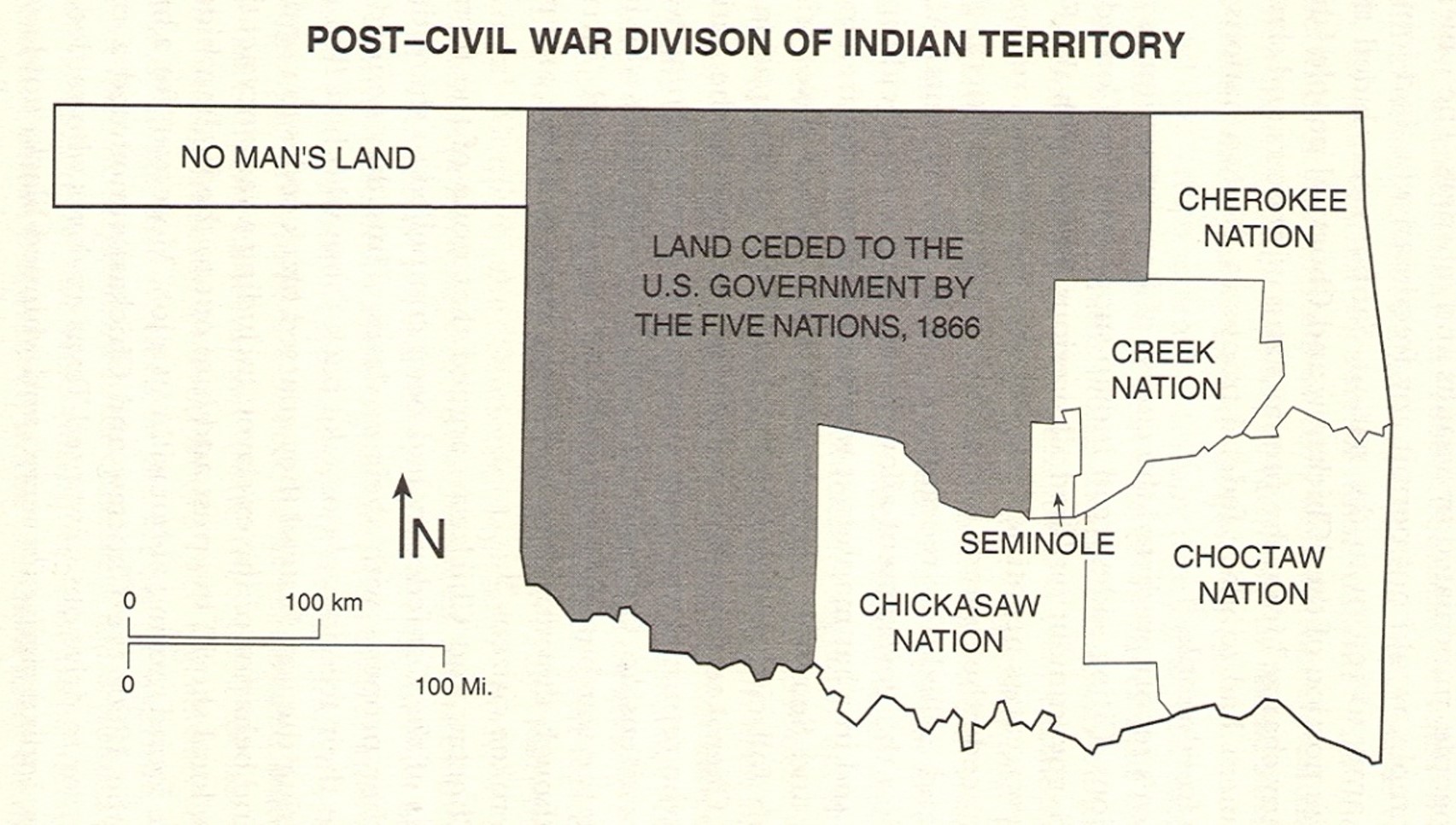(Sections Related to the Freedmen)
July 19, 1866. Ratified July 27, 1866. Proclaimed August 11, 1866
ARTICLE 4.
All the Cherokees and freed persons who were formerly slaves to any Cherokee, and all free negroes not having been such slaves, who resided in the Cherokee Nation prior to June first, eighteen hundred and sixty-one, who may within two years elect not to reside northeast of the Arkansas River and southeast of Grand River, shall have the right to settle in and occupy the Canadian district southwest of the Arkansas River, and also all that tract of country lying northwest of Grand River, and bounded on the southeast by Grand River and west by the Creek reservation to the northeast corner thereof; from thence west on the north line of the Creek reservation to the ninety-sixth degree of west longitude; and thence north on said line of longitude so far that a line due east to Grand River will include a quantity of land equal to one hundred and sixty acres for each person who may so elect to reside in the territory above-described in this article: Provided, That that part of said district north of the Arkansas River shall not be set apart until it shall be found that the Canadian district is not sufficiently large to allow one hundred and sixty acres to each person desiring to obtain settlement under the provisions of this article.
ARTICLE 5.
The inhabitants electing to reside in the district described in the preceding article shall have the right to elect all their local officers and judges, and the number of delegates to which by their numbers they may be entitled in any general council to be established in the Indian Territory under the provisions of this treaty, as stated in Article XII, and to control all their local affairs, and to establish all necessary police regulations and rules for the administration of justice in said district, not inconsistent with the constitution of the Cherokee Nation or the laws of the United States; Provided, The Cherokees residing in said district shall enjoy all the rights and privileges of other Cherokees who may elect to settle in said district as hereinbefore provided, and shall hold the same rights and privileges and be subject to the same liabilities as those who elect to settle in said district under the provisions of this treaty; Provided also, That if any such police regulations or rules be adopted which, in the opinion of the President, bear oppressively on any citizen of the nation, he may suspend the same. And all rules or regulations in said district, or in any other district of the nation, discriminating against the citizens of other districts, are prohibited, and shall be void.
ARTICLE 9.
The Cherokee Nation having, voluntarily, in February, eighteen hundred and sixty-three, by an act of the national council, forever abolished slavery, hereby covenant and agree that never hereafter shall either slavery or involuntary servitude exist in their nation otherwise than in the punishment of crime, whereof the party shall have been duly convicted, in accordance with laws applicable to all the members of said tribe alike. They further agree that all freedmen who have been liberated by voluntary act of their former owners or by law, as well as all free colored persons who were in the country at the commencement of the rebellion, and are now residents therein, or who may return within six months, and their descendants, shall have all the rights of native Cherokees: Provided, That owners of slaves so emancipated in the Cherokee Nation shall never receive any compensation or pay for the slaves so emancipated.
ARTICLE 10.
Every Cherokee and freed person resident in the Cherokee Nation shall have the right to sell any products of his farm, including his or her live stock, or any merchandise or manufactured products, and to ship and drive the same to market without restraint, paying any tax thereon which is now or may be levied by the United States on the quantity sold outside of the Indian Territory.

